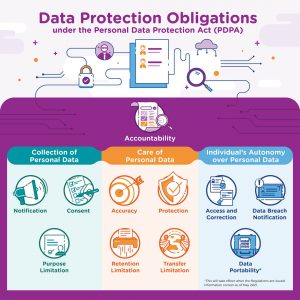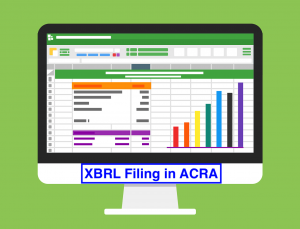Why set up a business in Singapore?
Singapore is the financial and business hub of Southeast Asia. The Lion City is simultaneously the world�s second-safest city, third least corrupt country, and constantly moves between first to third busiest shipping port in the world. It is currently rated as an Alpha+ global city, with influence on the world economy.
Singapore is business-friendly, charging a flat corporate tax rate of 17 per cent, and an undifferentiated Goods and Services Tax (GST) of seven per cent. The country imposes no capital gains tax or inheritance tax.
As such, Singapore is an ideal location for businesses seeking a foothold in Asia. Registration is a quick process if done right (it can take as little as three days). Here�s how to do it as a foreigner:
- Appoint a resident director
- Find a valid business address
- Decide on a company structure
- Register with ACRA
- Open a bank account
- Appoint a company secretary
- Obtain any other relevant licenses / registration
1. Appoint a resident director
For your company to be registered, it must have a resident director. You can appoint someone who is a Singapore Citizen or Singapore Permanent Resident to fulfill this role, if you�ll be running the company from abroad.
However, if you intend to work in Singapore as the resident director yourself, you will need an Employment Pass (EP) holder, or Entrepreneur Pass (EntrePass) Holder. Visit the Ministry of Manpower (MoM) for details on how to obtain one.
We can help you with finding a qualified resident director.
2. Find a valid business address
You will need to provide your business address during registration, so be sure to find a suitable office first. Note that you cannot use a Post Office (PO) Box number.
The registered office must be operational accessible to the public during office hours, but it is not necessary that your business activities be conducted there (e.g. you can have a registered business office in Changi Business Park, even if your main operations are in Jurong East).
Note that you cannot usually use a home (residential) address for this purpose (when you see companies doing this, they are typically local sole proprietorships or LPs, which have been granted special permission to do so under the Home Office Scheme).
3. Decide on a company structure
Is your business a sole-proprietorship, Limited Liability Partnership, or Private Limited company?
Each of these structures provide their own advantages. For example, Pte Ltd company is a separate legal entity from you; this can mean that you�re not always liable for the company�s debts. However, this has more extensive requirements later, such as having to hold Annual General Meetings (AGMs).
For more details on the various company structures, contact us for help. We can work out which type of company best suits your business.
4. Register with ACRA
All business entities operating in Singapore are required to register with the Accounting and Corporate Regulatory Authority (ACRA). Before you attempt to register, make sure you fulfill the basic requirements. For a Private Limited company, these are:
- At least one resident director has been appointed
- The local registered address is ready
- You have at least one shareholder (maximum of 50)
- You have the initial paid-up capital ready (minimum of $1; but EntrePass seekers should note that the minimum is $50,000 when attempting to obtain the EntrePass)
Registration can be done online, via BizFile+. Note that the person attempting registration must log in using SingPass, which is only granted to Singapore Citizens, Singaporean Permanent Residents, and appropriate work pass holders (see step 1).
Simply follow the steps on the screen to complete registration. Note that you will need to fill in the following fields, among others:
- A valid company name. Names cannot be too similar to existing registered entities, and cannot be misleading (e.g. you may not be allowed to use a name that makes your company sound like a government body). Names also cannot include vulgarities or objectionable terms.
- A description of your business activities
- Particulars of shareholders (for relevant company structures)
- Particulars of directors
- Registered office hours (minimum of three hours per weekday)
In addition, foreigners must be prepared to submit a copy of their passport, and proof of residential address (if overseas).
If you�re having difficulty completing registration, drop us a note so we can help.
Assuming everything is in order, your business entity can be registered in as little as three days (you will receive an email with your business UEN number, as well as a downloadable business profile).
5. Open a bank account
Your business entity must be registered, before local banks will allow you to open a corporate account. The corporate account is necessary for your business operations in Singapore.
Singapore is a financial hub with many options, so be sure to compare between SME account types for the best advantages. Be aware that fee structures for services – such as forex – can differ significantly between banks.
As your corporate secretarial service, we can help you expedite this process, and identify the bank that best suits your needs.
6. Appoint a company secretary
You must appoint a company secretary within six months of registering your company. Failure to do so could see your entity struck off the list, and you will have to go through the process again.
We can take care of this step for you directly, just drop us a note. If you are choosing to handle this yourself, however, we suggest you begin searching for a company secretary before you even begin registration. This is to minimise the risk of having to go through the whole process again.
7. Obtain any other relevant licenses / registration
In Singapore, the three main forms of registration to bear in mind are:
- Import / Export licensing – you can apply for these from Singapore Customs
- GST registration – You must register for GST if your annual taxable revenue exceeds SGD$1 million per annum
- Registration with Central Provident Fund (CPF) for local employees.
If your business has any other licensing needs (e.g. hazardous materials handling, instructor licenses), ensure these are in order before you begin operations. Note that you cannot usually obtain licensing before you receive your business’s UEN number from ACRA.
As a corporate secretarial services provider, we can provide additional help in managing or acquiring various licenses.
Confused, or don�t have time for this?
We�re experienced providers of corporate secretarial services, and we�re licensed to act on your behalf in registering your business. You could be on your way with just a 15 minute chat with us, instead of struggling through the form-filling and delays.
Contact us today to get your business started.







